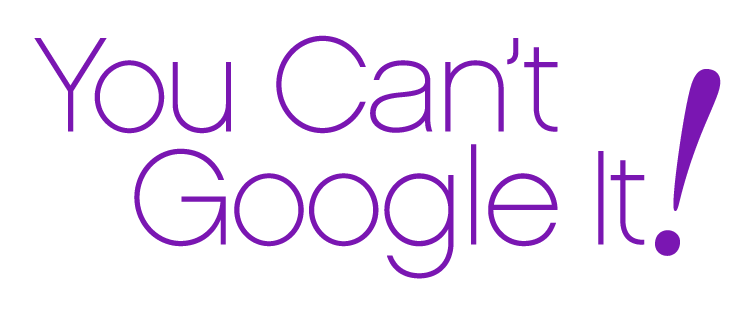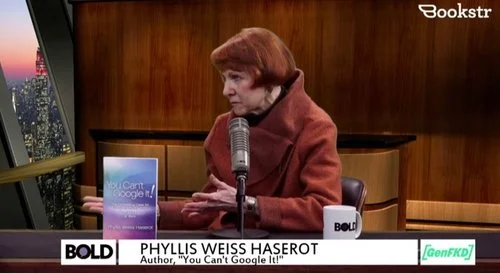Supplying What’s Missing from the Mentorscape
/Whatever generation you identify with, wherever you are on your career spectrum, I encourage you to look at your career life as an adventure with both some risks and opportunities to try new things. Get to know new people, and do it with a pre-disposition for offering what you have to share, whether age 20 or 80 or anywhere in between. In addition to individual benefit, it will make for stronger firms/organizations economically, and happier places to work – places in which to thrive and take pride. It may even result in getting visible recognition for being selected as “employer of choice,” attracting the very best people to work with.
CROSS-GENERATIONAL SOLUTIONS
How Mutual Mentoring and Circles Help All Generations
Gen Z/Millennials and the younger end of Gen Xers clamor for mentoring, and some Baby Boomers who came late to the *game as mentees regret what they missed. Why not make up for it by being generous as a mentor to individuals and teams. Both mentees and mentors will benefit in myriad ways. It’s never too late to pursue mentoring - especially with mutual, circles and multi-generational mentoring team formats. These innovations provide a competitive edge for talent attraction and retention.
Understanding What Young Professional Talent Wants
Workplace culture is changing as the younger generations gather strength in numbers. The 10 items below are what surveys and private conversations tell us young professionals and other knowledge workers want and need in order to develop to their potential for their own success and satisfaction and that of their employers and clients. In truth, the three are inexorably tied. A workplace culture imbued with these 10 attributes will benefit everybody.
Defined values and culture they can relate to.
Career and professional development and ongoing training/mentoring.
A feeling they add value and make a difference.
Career fulfillment – intellectual challenge, recognition, growth.
Active talent management providing leadership, feedback.
Collaboration, appreciation, praise.
Flexibility.
Opportunities to contribute to the community or other pro bono activities.
Camaraderie.
Informal atmosphere.
The most tangible reward - compensation, which ranks higher for some than others who would trade some dollars for more of the other items above.
This list attests to the desired quality of work and its impact on personal lives
Understanding What Mid-Level and Most Seasoned Professionals and Executives Want
They want respect for what they bring with their experience and perspectives, elimination of ageism and other “isms,” and not to be pushed aside prematurely, or for it to be assumed they will be difficult to work with. They want opportunity to continue to grow and contribute, including training for new skills if needed.
All of the generations want most of the same things, and they should be sought collectively at all levels and functions. It is not necessary for many team roles and client-facing roles for workers to have been doing something for 25 or more years to get an opportunity for a significant or leadership role. Standard paying your dues, if it’s “just because,” is self-defeating for firms as well as frustrating and off-putting for talented individuals.
What’s Been Missing?
Many mentoring matches and programs have proven to be valuable and accomplished their objectives. Probably many more have not, as many years of survey and interview responses have revealed. There are many reasons given, among them:
No stated goals and expectations or ground rules.
Expecting one paired mentor to be capable of providing all the help the mentee seeks.
Bad chemistry between the pairings, and no choices or alternatives.
Lack of time or difficulty scheduling.
Insufficient understanding of generational differences and perspectives.
Lack of feelings of psychological safety.
And many more.
Formats that Better Meet Today’s and Future Needs
Mutual mentoring occurs when each person brings to the table knowledge to teach and a different topic to learn, and they agree to exchange mentor and mentee roles as appropriate. This is a two-way process in which each party gives and gains.
Can you see the potential in the workplace, for example, between the tech super-savvy Gen Z and Millennials who may be challenged in some of their in-person and formal written communication skills and the Boomers who are working to become more technologically adept Boomers typically have developed, through education and practice, more effective communication skills. And the possibilities are endless based on skills and behavior desired and needed for career/life achievement and fulfillment. These are changing faster than ever.
How do we implement mutual mentoring in today’s work context where age and experience has historically dictated and still colors role behavior? Parent-child type hot buttons may surface in workplace relationships with different causes among different generations over time. This magnifies the impact of issues such as an older professional reporting to a younger one, increasingly common in many industries, “paying your dues” versus solely merit-based recognition, or appropriateness of dress as well as informality of environment. Ways to minimize such challenges needs to be addressed through meaningful, often facilitated, conversations among the generations.
Implementing Alternate Styles of Mentoring
As a formal process, mutual mentoring, mentoring circles, and newer approaches are most likely to take root if:
It is put in the context of, and plays upon, professionals' natural desire to keep learning and the fulfillment gained by helping others.
It is open to and encouraged for everyone – rather than viewed as remedial.
Participants know and understand generational differences and perspectives and keep them in mind in communicating.
Expectations are set, self-evaluations are done, results are publicized and mentors are recognized in meaningful ways appropriate to each generation.
People are tangibly rewarded for their mentoring roles.
A mentoring coordinator “gets” the process and has the respect and influence with organizational leaders. That will encourage accountability and sustainability of the initiative.
With or without a firm mentoring program or individually initiated mentoring, there are several other ways to benefit from multi-generational conversations.
A good mentor, experienced with coaching and facilitating expertise, whether internal or external, who understands your organization and intergenerational dynamics, can help. Don’t be complacent. Ask for help.-
Call to Action: Contact me at pwhaserot@pdcounsel.com for a Checklist on “7 Self- and Career Development Tactics for Cross-Generational Conversation,” to set up a 20-minute briefing and to learn about Mentoring Momentum and other alternative formats. If you share a few specifics about your situation and mentoring in your career and life, I will give some complimentary suggestions.
© Phyllis Weiss Haserot, 2023.



